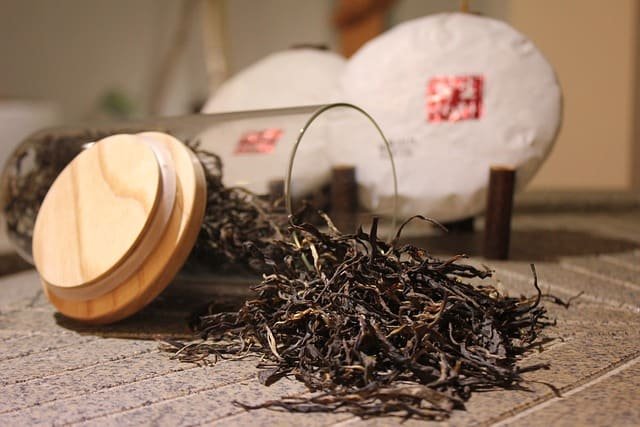
Natural drinks have become very popular in recent years. Among them, black tea is one of the most recommended by doctors because it is very beneficial for health. In this post, you can learn several facts about this intake. Specifically, we will be sharing with you about the amount of caffeine in black tea.
According to experts, the black tea is one of the natural drinks that contain more caffeine, so doctors do not usually recommend that it be drunk late at night, to avoid insomnia. Every 100g of black tea contains approximately 20mg of caffeine, which is quite a high figure, considering that this tea is a medicinal drink.
It is important to mention that this variety is the one with the highest degree of oxidation, compared to all the types of tea that exist. To prepare this drink, leaves of a plant called ”Camellia Sinensis” are used, which comes from China, but is currently cultivated in many countries around the world.
One of the most outstanding characteristics regarding this tea is its smell, since it is usually quite strong. As for its taste, it is quite intense compared to other similar drinks. To ingest black tea, it is necessary to add sugar or another sweetener, to be able to tolerate the taste. It should be noted that this type of tea maintains its properties for a long time.
Benefits of caffeine free black tea
At present, there are many variations regarding this natural drink. One of them, which is quite popular today, is decaf. In this post, we will share some of the benefits of caffeine-free black tea, so that you can increase your interest in including it in your diet. Read on and you can learn a lot about it.
One of the main advantages of consuming this decaffeinated drink is that it does not cause insomnia, so it can be drunk at night without any problem. In addition to this, it is scientifically proven that caffeine-free black tea does not cause heartburn, heart problems or dehydration.
Even though the decaf tea loses a considerable amount of antioxidants, there are many other benefits that are preserved. Among these positive contributions is the burning of abdominal fat, which contributes to weight loss. Added to this, black tea, although it does not contain caffeine, contributes positively to bone health.
The mental health benefits are also preserved when the tea has absolutely no caffeine. Among these contributions are the stimulating properties of this drink. That is, by ingesting a prudent amount of this drink, the mind is kept alert during the day, also favoring concentration and memorization.
What contains more caffeine, black tea or coffee?
Due to the large amount of theine in this drink, many people wonder if it contains even more than coffee. According to the explanations of numerous nutritionists, this drink has more caffeine than black tea. A cup of this drink, approximately 55 ml, contains around 50 mg of this substance.
For its part, a 55 ml cup of coffee has a caffeine content of approximately 125 mg. It is for this reason that many health professionals recommend that the intake of tea be much higher than that of coffee, to maintain a good state of health, both physical and mental.
It is important to mention that consuming too much caffeine can produce certain contraindications. Here is a short list of the possible consequences of consuming beverages that contain a lot of theine:
-Headaches.
-Nausea and dizziness.
-Anxiety.
-Dehydration.
Although caffeine also provides some benefits, it is much more recommended to drink decaffeinated drinks, which can also be included in various recipes, in order to improve their flavor.
What are the teas that have caffeine?
Besides of black tea, there are many others that also have a great content in terms of caffeine. It is essential that you know what these drinks are, so that you can avoid them, opting for decaffeinated drinks. Read on and you will know about caffeinated teas.
One of the natural drinks that are also known to contain a considerable amount of caffeine is green tea. A 200 ml cup has approximately 24 g. Matcha tea also has caffeine, approximately 35 mg per 200 ml cup.
White tea is known to be one of the least caffeinated, at about 55mg or less per cup. It is for this reason that it is one of the most recommended by health professionals.
What teas are caffeine free?

As mentioned above, caffeine does have some drawbacks. Although most teas contain this substance, there are also some that do not have it at all. If you want to know what these teas are, continue reading and you will be able to know this important fact.
Among the teas that contain absolutely no caffeine are the following:
-Ginger tea.
-Chamomile tea.
-Chai tea.
-Infused water.
In general, these types of drinks have a much less bitter taste than those with caffeine, so they do not need too much sugar in their preparation. Another of the advantages of teas that do not have this substance has to do with the fact that they can be ingested in greater quantities during the day, since they are not too harmful.
Oral health is also benefited by the intake of decaffeinated beverages. This is because this substance produces stains on the teeth. Doctors generally recommend drinking caffeinated teas two to three times a day. As for non-caffeinated drinks, 4 to 5 cups per day can be consumed.
